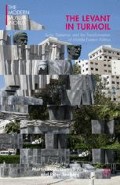Abstract
“What is IS [the Islamic State] a case of?” This question Jillian Schwedler posed in an essay published in February 2015 in the Washington Post. In this article, she discussed the terms that academics and the broader public use in analyzing Islamist organizations in general and the IS in particular.1 Of course, Schwedler had no difficulties in categorizing the IS as a radical and extremist jihadist group. Yet, how is this group different from other jihadist organizations? This question has occupied scholars and media pundits in their assessment of the rise of the IS and its warfare in Syria and Iraq. In an essay for the German newspaper Süddeutsche Zeitung, for instance, Volker Perthes, the director of the German think tank Stiftung Wissenschaft und Politik (German Institute for International and Security Affairs) in Berlin, warned the public not to underestimate the significance of the role of the IS in the Syrian civil war. Instead of talking about a mere terrorist organization, Perthes suggested considering the IS as the central actor in a jihadist state-building process, which is “totalitarian, expansive, and hegemonic” in its nature.2 Perthes’s essay raised immediate responses. In the journal Zenith Naseef Naeem and Daniel Gerlach, to take only one example, criticized Perthes in that talking with reference to the IS about a state-building process enhanced its status and disparaged the concept of the state.3
Access this chapter
Tax calculation will be finalised at checkout
Purchases are for personal use only
Preview
Unable to display preview. Download preview PDF.
References
Brown, C. (2001) World Society and the English School: An “International Society” Perspective on World Society. European Journal of International Relations. 7 (4), 423–42.
Brown, C. L. (1984) International Politics and the Middle East. Old Rules, Dangerous Game (Princeton, NJ: Princeton University Press).
Cagaptay, S. and Sievers, M. (2015) Turkey and Egypt’s Great Game in the Middle East. Foreign Affairs Snapshot, March 8, 2015, available at: https://www.foreignaffairs.com/articles/turkey/2015–03–08/turkey-and-egypts-great-game-middle-east, last accessed January 31, 2015.
Carpenter, T. G. (2013) Tangled Web: The Syrian Civil War and Its Implications. Mediterranean Quarterly. 24 (1), 1–11.
Elias, N. (1994) The Civilizing Process. The History of Manners and State Formation and Civilization (Oxford: Blackwell).
Eriksson, M., Wallensteen, P. and Sollenberg, M. (2003) Armed Conflict, 1989–2002. Journal of Peace Research. 40 (5), 593–607.
Gantzel, K. J. and Schwinghammer, T. (2000) Warfare since the Second World War (New Brunswick and London: Transaction Publishers).
Gleditsch, N. P. et al. (2002) Armed conflict 1946–2001. A New Dataset. Journal of Peace Research. 39 (5), 615–37.
Goldsmith, L. (2013) “God Wanted Diversity”: Alawite Pluralist Ideals and their Integration into Syrian Society 1832–1973. British Journal of Middle Eastern Studies. 40 (4), 392–409.
Hashim, A. S. (2014) The Islamic State: From A l-Qaeda Affiliate to Caliphate. Middle East Policy. 21 (4), 69–83.
Heydemann, S. (2000) War, Institutions and Social Change in the Middle East (Berkeley: University of California Press).
Jung, D. (2011a) Orientalists, Islamists and the Global Public Sphere. A Genealogy of the Modern Essentialist Image of Islam (Sheffield: Equinox).
Jung, D. (2011b) Unrest in the Arab World: Four Questions. Insight Turkey. 13 (3), 1–10.
Jung, D. (2014a) The “Ottoman-German Jihad”: Lessons for the Contemporary “Area Studies” Controversy. British Journal of Middle Eastern Studies. 41(1), 1–19.
Jung, D., Petersen, M. J. and Sparre, S. L. (2014) Politics of Modern Muslim Subjectivities. Islam, Youth, and Social Activism in the Middle East (New York: Palgrave MacMillan).
Kaldor, M. (1999) New and Old Wars. Organized Violence in a Global Era (Cambridge: Cambridge University Press).
Karaveli, H. (2012) Why Does Turkey Want Regime Change in Syria? The National Interest. July 23, 2012.
Laiz, A. M. and Schlichte, K. (2015) Another Weber: State, Associations and Domination in International Relations. Cambridge Review of International Affairs, March 9, 2015, available at: http://www.tandfon-line.com/doi/full/10.1080/09557571.2015.1007336#.V VCpJjIcSUk, last accessed January 31, 2015.
Lerner, D. (1958) The Passing of Traditional Society. Modernizing the Middle East. 4th edition. 1968 edition (New York: Free Press).
Lister, C. (2014) Profiling the Islamic State. Brookings Doha Center Analysis Paper. 13.
Lloyd, D. (ed.) (1999) Ireland after History (Notre Dame: Notre Dame University Press).
Lustick, I. S. (1997) The Absence of Middle Eastern Great Powers: Political “Backwardness” in Historical Perspective. International Organization. 51 (4), 653–83.
Makdisi, U. (2000) The Culture of Sectarianism: Community, History, and Violence in Nineteenth-Century Ottoman Lebanon (Berkeley and Los Angeles: University of California Press).
Malesevic, S. (2013) Nation-States and Nationalisms (Cambridge: Polity).
Tilly, C. (1985) War Making and State Making as Organized Crime. In Evans, P., Rueschemeyer, D. and Skocpol, T. (eds.) Bringing the State Back In (Cambridge: Cambridge University Press).
Tilly, C. (1990) Coercion, Capital, and European States, AD990–1990 (Oxford: Basil Blackwell).
Weber, M. (1919) The Profession and Vocation of Politics. In From Max Weber: Essays in Sociology. Ed. with an introduction by Gerth, H. H. and Wright Mills, C., with a new preface by Bryan S. Turner (London: Routledge).
Wedeen, L. (1999) Ambiguities of Domination. Politics, Rhetoric, and Symbols in Contemporary Syria (Chicago: University of Chicago Press).
Editor information
Copyright information
© 2016 Dietrich Jung
About this chapter
Cite this chapter
Jung, D. (2016). Turmoil in the Levant: Inconclusive Conclusions. In: Beck, M., Jung, D., Seeberg, P. (eds) The Levant in Turmoil. The Modern Muslim World. Palgrave Macmillan, New York. https://doi.org/10.1057/9781137526021_10
Download citation
DOI: https://doi.org/10.1057/9781137526021_10
Publisher Name: Palgrave Macmillan, New York
Print ISBN: 978-1-349-57628-9
Online ISBN: 978-1-137-52602-1
eBook Packages: Political Science and International StudiesPolitical Science and International Studies (R0)

